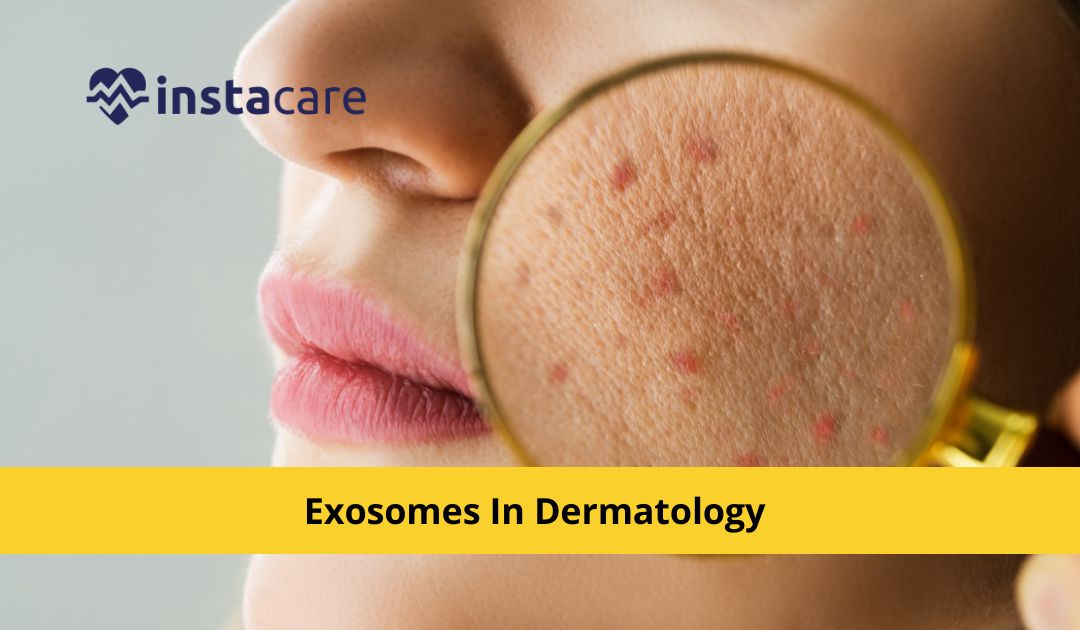Exosomes have emerged as game-changers in dermatology, completely transforming how we approach skin treatments and rejuvenation. Their impact is revolutionary, fundamentally altering the landscape of skincare. To truly grasp their significance, it's imperative to delve into their intricate biological functions, explore their diverse clinical applications, and envision the promising horizons they open up for the future of skincare innovations.
These tiny vesicles hold the key to unlocking advanced
therapies, making a profound difference in how we care for and regenerate our
skin. Understanding their intricacies isn't just beneficial; it's absolutely
essential for anyone aiming to push the boundaries of skincare advancements.
Introduction To Exosomes
Exosomes are tiny, membrane-bound vesicles secreted by cells
into bodily fluids. They play a crucial role in intercellular communication,
shuttling bioactive molecules like proteins, RNA, and lipids between cells. In
dermatology, their significance lies in their ability to influence various skin
processes, from regeneration to immune response modulation.
Biological Functions
These vesicles act as mediators, transmitting molecular
messages and regulating cellular activities. In dermatological contexts,
exosomes modulate skin cell behavior, impacting wound healing, inflammation,
and tissue regeneration. They facilitate the exchange of genetic information,
playing a pivotal role in maintaining skin health and integrity.
Exosome Isolation And Production
Various methods exist to isolate exosomes from biological
fluids or cell cultures. Ultracentrifugation, ultrafiltration, and
precipitation are common techniques. The production process involves collecting
these vesicles from sources like stem cells or bodily fluids, requiring
meticulous purification and characterization.
Exosomes In Skin Conditions
Exosomes hold promise in addressing dermatological issues like acne, where they exhibit anti-inflammatory properties, regulate sebum production, and modulate skin cell behavior. Additionally, they aid in combating aging
signs by promoting collagen production and accelerating wound
healing processes.
View More: How To Manifest Good Health Through Mindful Practices
Clinical Applications
The application of exosome-infused cosmeceuticals and
therapeutics is increasingly becoming popular in the realm of dermatology.
These cosmeceuticals, fortified with exosomes, demonstrate promising abilities
to enhance skin texture, diminish pigmentation issues, and tackle blemishes
effectively. On the therapeutic front, exosomes are being harnessed to address
diverse skin conditions and manage wounds, showcasing their versatile potential
in clinical settings for promoting skin health and recovery.
Research And Future Trends
Ongoing research explores personalized skincare approaches
and targeted therapies utilizing exosomes. Scientists are investigating ways to
optimize exosome efficacy, improve delivery methods, and develop tailored
treatments for specific dermatological concerns.
Safety And Regulations
Despite their significant potential, exosomes face scrutiny concerning their long-term safety and regulatory oversight. The FDA rigorously oversees their utilization in skincare and therapeutic realms, aiming to uphold stringent efficacy and safety standards. While acknowledging their promise, ongoing assessment and regulatory scrutiny remain essential to address concerns surrounding their prolonged use and ensure adherence to established safety protocols.
This close monitoring underscores the commitment to maintain safety
standards and optimize the beneficial impact of exosomes in skincare and
therapeutic applications.
Benefits And Limitations
Exosomes offer advantages such as minimal invasiveness, low
immunogenicity, and targeted delivery, making them an attractive option in
dermatology. However, challenges exist regarding scalability, storage, and
standardization in production.
Comparison With Other Treatments
Contrasting exosome therapy with conventional skincare
treatments reveals its unique benefits, such as targeted action and potential
for personalized treatments. However, traditional treatments may still hold
value for certain skin conditions or individuals.
Patient Considerations
Determining suitable candidates for exosome-based therapies
involves assessing individual skin concerns, medical history, and potential
allergic reactions. Understanding the risks and benefits is crucial for
informed decision-making.
Expert Opinions
The wisdom shared by dermatologists and experts offers
invaluable insights into incorporating exosome therapies within skincare routines. Their perspectives serve as a guiding beacon, illuminating the
effectiveness, constraints, and potential pathways of exosome-centered
treatments. Their expertise not only showcases what works but also highlights
the boundaries and possibilities in the evolution of exosome-based therapies.
Educational Resources
Exploring trustworthy resources and educational materials is
crucial for understanding the role of exosomes in dermatology. Engaging with
credible sources not only helps grasp their significance but also elevates
awareness, enabling well-informed conversations about how exosomes can be
applied in dermatological contexts.
Conclusion
Exosomes represent a beacon of promise within dermatology, serving as transformative agents for an array of skin conditions. Their multifaceted nature, coupled with the continuous exploration through ongoing research, signifies a vast potential for propelling skincare and therapeutic interventions to unprecedented heights. These microscopic entities embody not just versatility but an evolving frontier, showcasing a spectrum of possibilities for innovative solutions in dermatological care.
With their remarkable adaptability and the constant expansion of scientific inquiry, exosomes emerge as pivotal instruments, promising a paradigm shift in how we approach and resolve various skin concerns through advanced skincare and therapeutic modalities.
Please book an appointment with the Best Dermatologist in Lahore, Karachi, Islamabad, and all major cities of Pakistan through InstaCare, or call our helpline at 03171777509 to find the verified doctor for your disease.

